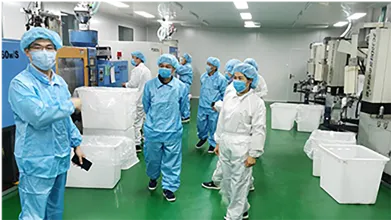50ml Round Bottom Centrifuge Tubes for Laboratory Use and Sample Storage Applications
The Utility and Importance of Round Bottom Centrifuge Tubes A Focus on 50ml Models
Centrifugation is a vital technique widely used in laboratories for the separation of substances based on density differences. At the heart of this process lies the centrifuge tube, a crucial apparatus that plays an instrumental role in the effective separation of components in various applications, including biological, chemical, and clinical research. Among the assortment of centrifuge tubes available, 50ml round bottom centrifuge tubes have gained prominence owing to their design and versatility.
Design and Features
Round bottom centrifuge tubes, as the name suggests, feature a rounded base, which allows for more efficient sedimentation and separation of particles. The design is particularly beneficial when it comes to high-speed centrifugation, as the round bottom prevents the accumulation of particles in corners, facilitating an even distribution of force during the spinning process. This characteristic leads to a more effective separation of cellular components, proteins, or other solutes from a liquid medium, making them an essential tool in both research and clinical laboratories.
Typically made from high-quality polypropylene, 50ml round bottom centrifuge tubes are designed to withstand high centrifugal forces as well as a wide range of temperature conditions. Their robustness ensures minimal risk of breakage during operation, which is paramount when handling valuable samples. Many models also come with a graduated scale, allowing researchers to easily measure the volume of liquid contained within the tube without the need for additional equipment.
Applications in Research and Industry
round bottom centrifuge tubes 50ml

The applications of 50ml round bottom centrifuge tubes are manifold. In biological research, these tubes are commonly used for the isolation of cells, viruses, organelles, and macromolecules. They are indispensable in protocols involving centrifugation, such as the purification of DNA or RNA, wherein high g-forces facilitate the separation of nucleic acids from other cellular debris. The rounded design aids in maximizing yield by ensuring that even the smallest particles are sedimented effectively to the bottom of the tube.
In the clinical sector, 50ml round bottom centrifuge tubes are used in various diagnostic tests, including blood component separation. Clinicians utilize these tubes to isolate plasma and serum from whole blood samples, a process critical for numerous tests and analyses. Furthermore, in the biotechnology industry, these tubes are advantageous for scaling up culturing processes, wherein large volumes of liquid cultures must be processed effectively.
Safety and Environmental Considerations
When opting for 50ml round bottom centrifuge tubes, it is crucial to consider their safety and environmental impact. Most modern centrifuge tubes are designed to be autoclavable, allowing for sterilization and reuse, which is crucial in maintaining laboratory safety protocols. Moreover, with growing concerns regarding plastic waste, manufacturers are increasingly offering biodegradable options, contributing to more sustainable laboratory practices. Choosing products from reputable suppliers can further ensure that the tubes meet regulatory standards for safety and environmental responsibility.
Conclusion
In conclusion, 50ml round bottom centrifuge tubes are indispensable tools in modern laboratories across various fields. Their unique design and robust construction make them a preferred choice for efficient and effective separation processes. Whether in biological research, clinical diagnostics, or industrial applications, these tubes facilitate critical workflows, ensuring high standards of accuracy and reliability. As laboratory technologies continue to evolve, the importance of versatile and high-quality centrifuge tubes remains paramount, paving the way for advancements in scientific exploration and discovery.
-
Durable 250ml Blue Plastic Vaccine Vial for Lab & Vet UseNewsAug.16,2025
-
Sterile Virus Sample Tubes: Secure & Reliable Specimen CollectionNewsAug.15,2025
-
White 250ml Plastic Vaccine Vial for Lab & Vet MedicineNewsAug.14,2025
-
Premium Clear Plastic Vaccine Vials for Lab & Vet MedicineNewsAug.13,2025
-
Plastic Clear Vaccine Vials | Lab & Vet Liquid StorageNewsAug.12,2025
-
Secure 250ml Blue Plastic Vaccine Vials for Lab & VetNewsAug.11,2025
























